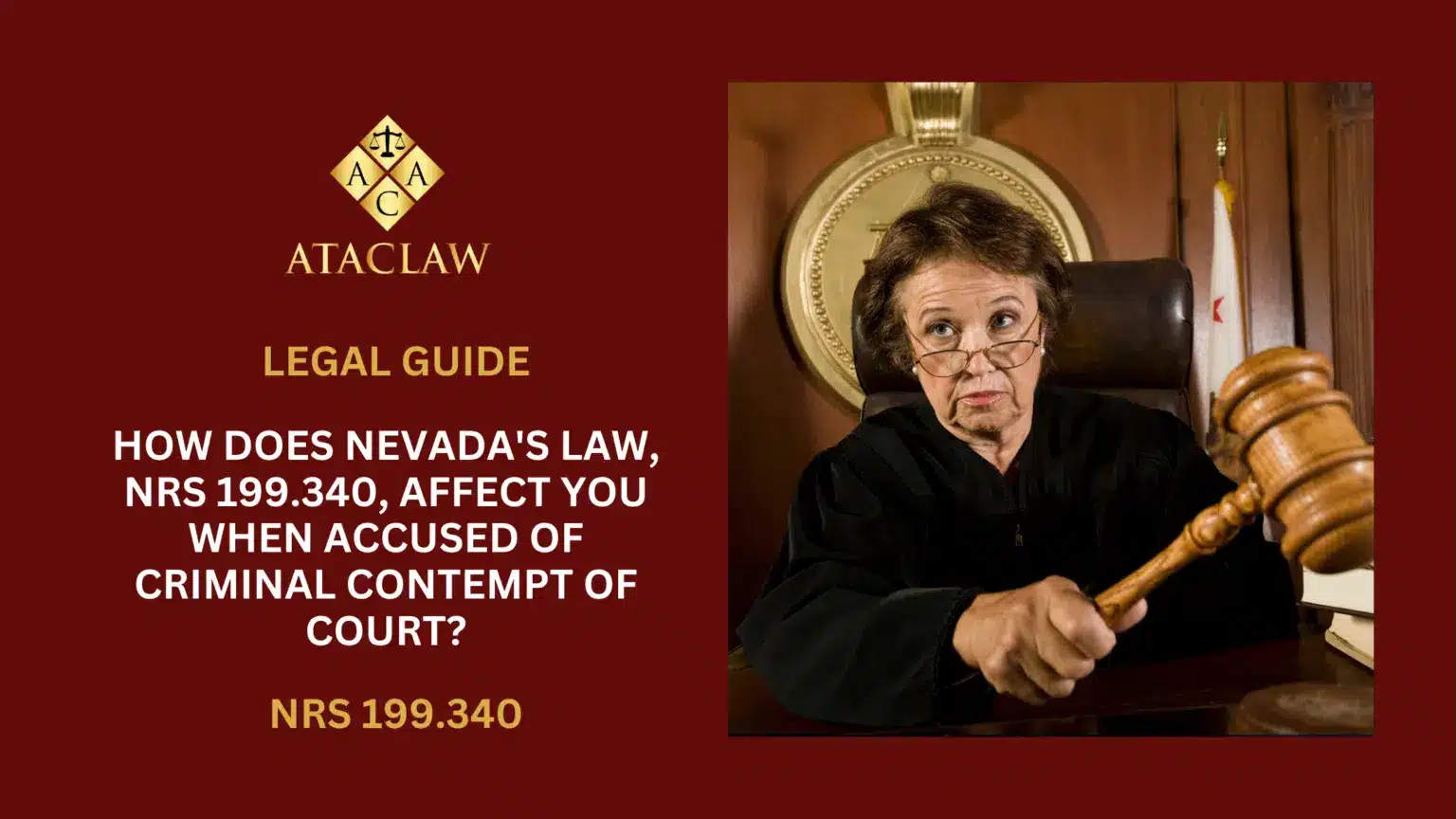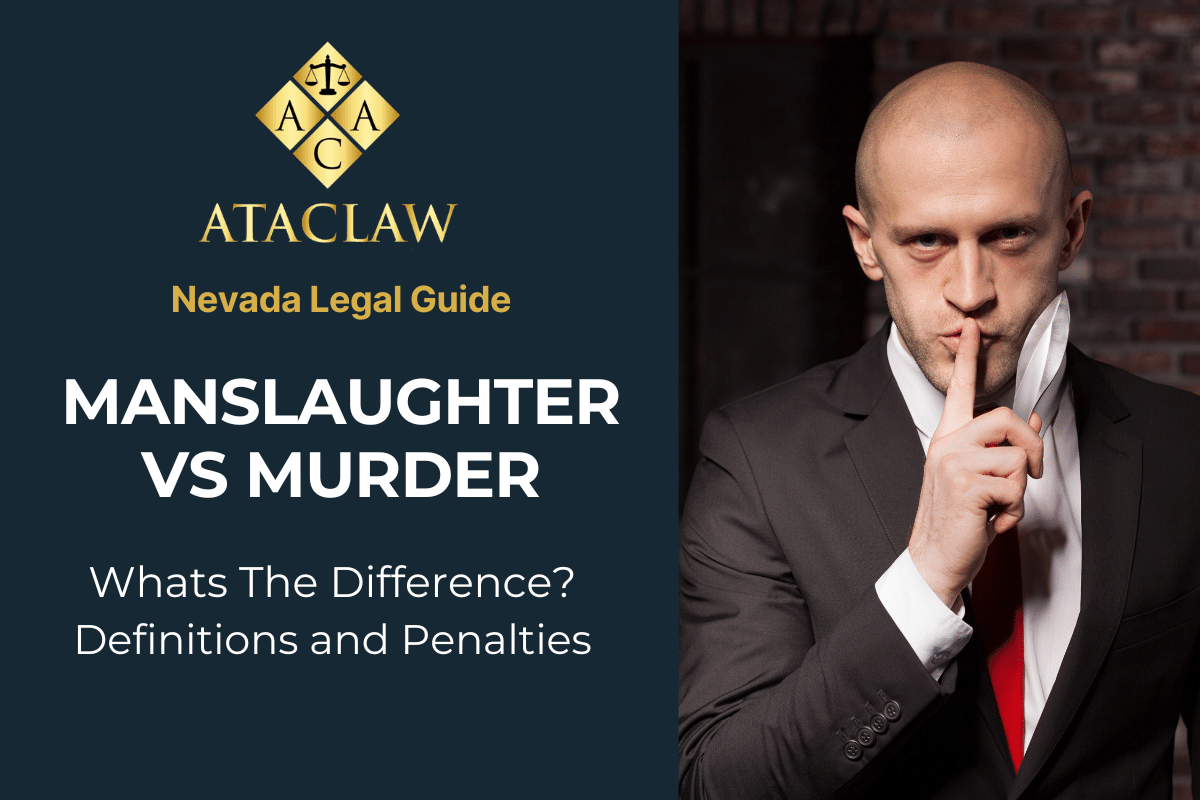There’s a certain sense of order and respect that governs every courtroom – these are not just traditions, but mandates entrenched within legal codes. One such law in Nevada is NRS 199.340, which deals with ‘Criminal Contempt of Court’. It prescribes clear rules of behavior within court proceedings and outlines penalties for transgressions. Undeniably, charges of criminal contempt can have significant implications, including fines and possible jail time.
What Actions Could Lead to Charges of Criminal Contempt Under NRS 199.340?
Judges in Nevada have broad discretion to determine what constitutes contemptuous behavior in their courtrooms. This can range from verbal outbursts by a defendant to refusal by a witness to answer questions, and even extends to loud protests outside the courtroom. This section of our blog will explore various scenarios that could potentially result in a finding of criminal contempt under Nevada law.
It’s a common misconception that only direct participants in legal proceedings can be held in contempt of court. This part of the blog will clear up that misunderstanding by explaining how Nevada law permits judges to charge virtually anyone whose behavior disrupts the dignified running of a court, regardless of their role or lack thereof in the case at hand.
The threshold for what is considered contemptible behavior can vary significantly from one courtroom to another. What one judge might tolerate, another may find intolerably disrespectful. This portion of our blog will discuss the subjective nature of criminal contempt charges and the importance of understanding the specific expectations and limits set by each judge.
What Makes Civil Contempt Different from Criminal Contempt in the Eyes of the Law?
In legal conversations, the distinction between civil and criminal contempt is essential but often muddled, resulting in misunderstandings. These are two fundamentally different legal concepts with their own set of consequences.
Criminal contempt is punitive and focuses on sanctioning behavior that obstructs justice, while civil contempt aims to enforce compliance with court orders, usually to benefit another person involved. Civil contempt is applied in situations like violations of a restraining order, to compel proper respect for the court’s authority. In contrast, criminal contempt charges are independent of the original case and can persist with their penalties even after the associated legal proceedings have ended. Civil contempt, however, is only relevant during the life of the legal case to which it is attached, terminating once the case is closed.
Can You Be Jailed for Contempt of Court in Nevada?
Criminal contempt is no small matter. In Nevada, you could face up to:
a. 6 months in jail, and/or
b. $1,000 in fines.
Civil contempt can also lead to significant penalties, such as:
a. Up to $500 in fines, and/or
b. Up to 25 days in jail.
But note that penalties can be stricter under certain conditions, like refusing to testify to a grand jury. For example, in Nevada, if you decline to testify in front of a grand jury, you could face a jail sentence of up to six months or until the grand jury concludes its term, whichever duration is shorter. Additionally, if the contempt charge arises from not complying with a judicial command to execute a specific action, the court has the authority to detain you until the mandated action is completed.
How Can You Successfully Counter Criminal Contempt Charges in Nevada?
Battling criminal contempt charges in Nevada demands a solid understanding of legal defenses because, just like in any criminal case, the prosecution must prove guilt beyond a reasonable doubt. If you find yourself facing such charges, knowing these defenses can significantly impact your case.
First, lack of intent is often a robust defense in contempt cases. In Nevada, for a court to convict someone of criminal contempt, it must be proven that the individual willfully violated court procedures. If the violation was accidental or resulted from a misunderstanding, the charges against you should not stand. It’s important to communicate any such circumstances clearly, as they can make a substantial difference in the outcome.
Second, the definition of contemptuous behavior can sometimes be subjective. There are instances where what is perceived as contempt might be a legitimate exercise of constitutional rights. If a judge mistakenly categorizes your behavior as contemptuous, or if it’s arguable that your actions were within your legal rights, then such charges might not hold water. It is vital to scrutinize the specifics of the alleged contemptuous act, as this can be key to dismantling the prosecutor’s case.
Third, false allegations represent another challenging aspect. Mistakes happen, and there are cases where individuals are wrongfully accused of contempt due to a judge’s error or through malicious intent by others. Establishing a strong defense by casting doubt on the accuracy of such allegations can be critical to avoiding unjust criminal liability.
Furthermore, it’s crucial to remember that a conviction for contempt is not the end. The Nevada criminal justice system allows for appeals, providing a pathway to challenge and potentially overturn unjust contempt convictions.
Can You Seal Your Criminal Record Quickly in Nevada?
How quickly can a criminal record be sealed in Nevada for a contempt charge? For misdemeanors like criminal contempt, the timelines are favorable—you’re eligible to petition for your record to be sealed just one year after the case concludes. However, if your contempt charges are dismissed, Nevada law permits you to seek immediate sealing of your record. This swiftness in clearing your name is essential for minimizing the long-term consequences and can be a crucial step in regaining opportunities in your personal and professional life.
If you find yourself navigating this process, it’s beneficial to seek comprehensive legal advice. An experienced attorney can guide you through the steps necessary to seal your record, ensuring that you meet all legal requirements promptly and efficiently. Remember, the path to clearing your name and reclaiming your future begins with understanding your rights and the legal avenues available to you.
For further legal assistance and to discuss your case with an expert, don’t hesitate to contact ATAC LAW.




